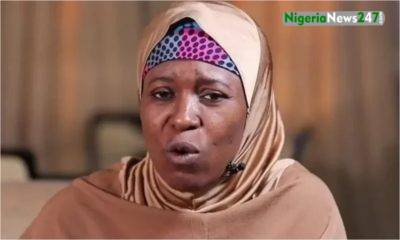NIGERIA NEWS
Senator Natasha Akpoti-Uduaghan: Politics in Nigeria is Extremely Dangerous for Women

Senator Natasha Akpoti-Uduaghan of Kogi Central has criticized the political climate in Nigeria, labeling it as particularly hazardous for women.
Speaking at the ECOWAS Female Parliament Association’s event titled “Rethinking Women’s Proportional Representation in Governance: Case Study of Nigeria” on Monday, Akpoti-Uduaghan highlighted the significant financial barriers that disadvantage women, noting that men are generally better positioned financially.
“Politics in Nigeria is extremely dangerous. Women cannot afford to be gentle in this environment. It is regrettable that women, who are naturally nurturing, have to become so hardened,” she said.
She recounted her personal struggles, stating that her experiences have made her tough and emotionally resilient. “I have to remind myself not to let these experiences harden me completely,” she added.
Akpoti-Uduaghan discussed the high costs of running for office in Nigeria and expressed her motivation to join politics to deliver democratic benefits to her constituents. She described her decision to enter politics in 2018, the electoral challenges she faced, and her commitment to her community.
She suggested that reducing the financial burden of elections could help, and expressed interest in studying Liberia’s independent candidature system as a possible solution.
She also spoke about the personal sacrifices she has made, including enduring accidents and physical hardships during her campaign.
The senator addressed the broader challenges women face in Nigerian politics, such as loss of dignity and cultural barriers. She urged male leaders to support and encourage women in politics rather than undermining them.
Finally, Akpoti-Uduaghan advised women to carefully plan their political agendas and avoid overpromising during campaigns, sharing insights from her own experiences. She also mentioned her collaboration with Senator Ireti Kingibe on a bill advocating for 45% women’s representation in governance.














![Top Nigeria Newspaper Headlines Today 25th June 2024 [Tuesday] 87 Nigeria Newspaper Headlines](https://nigerianews247.com/wp-content/uploads/2024/04/Nigeria-Newspaper-Headlines-80x80.png)

![[VIDEO] Tinubu Stumbles while Boarding Presidential Parade Vehicle at Eagles Square 90 Tinubu Stumbles while Boarding Presidential Parade Vehicle at Eagles Square](https://nigerianews247.com/wp-content/uploads/2024/06/Tinubu-Stumbles-while-Boarding-Presidential-Parade-Vehicle-at-Eagles-Square-80x80.jpeg)


You must be logged in to post a comment Login